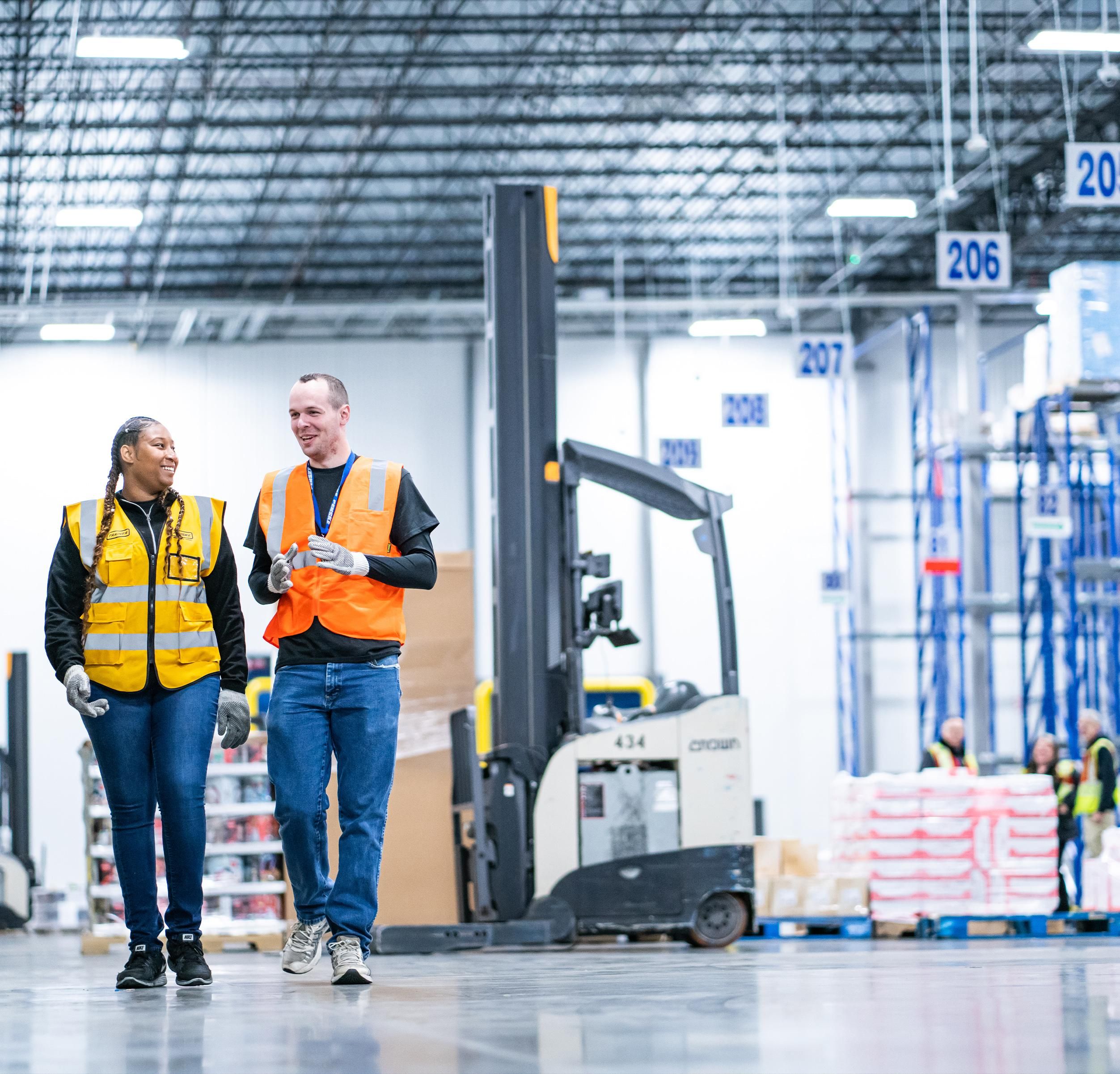Core Supply Chain Principles: Getting Back to Basics
How to manage disruptions by focusing on core principles

The supply chain continues to deal with ongoing disruptions, which have become increasingly numerous, larger in scale and more simultaneous. While technology plays a critical role in keeping products moving, 3PLs and shippers can’t overlook the value of getting back to basics and focusing on core supply chain principles that have proven successful time and time again.
According to a recent Third-Party Logistics Study, which was created by Dr. C. John Langley, clinical professor of supply chain management at Penn State University and sponsored by NTT Data and Penske Logistics, a return to the fundamental principles governing supply chains is underway.
“This new environment has helped to document the potential benefits of organizations moving back-to-basics by focusing on their core competencies and forming mutually beneficial partnerships that go beyond transactional relationships,” the study reported.
Core supply chain principles covered in the study include supply chain relationships, talent, and data and analytics, among others, Langley said.
Establishing Effective Relationships
Relationships are at the heart of successful partnerships, and Langley said all supply chain relationships must be well aligned to optimize the capabilities of each participant within the network. He noted that there are four cornerstones to every relationship:
- Clear, understandable and practical expectations/service-level agreements.
- Agreed-upon objectives with measurable performance outcomes.
- Information sharing and trust.
- Well-designed approaches to deal with disagreements and misunderstandings.
While speaking during a panel discussion on the study at the Council of Supply Chain Management’s 2022 Edge Supply Chain Conference and Exhibition, Andy Moses, senior vice president of solutions and sales strategy for Penske Logistics, said the figures shared in the report show the value of 3PL-shipper relationships with 83% of shipper respondents agreeing that their relationships are successful.
71% of shipper respondents reported that using 3PLs has contributed to improving customer service.
Moses said 3PLs were resilient and committed despite the pandemic and other supply chain headwinds. “We are very proud with the support we were able to deliver to shippers,” Moses said. “The amount of transportation and warehouse and supply chain logistics activity outsourced to 3PLs continues to grow very rapidly. It is obvious we in the industry have found some solutions.”
Recruiting and Retaining Talent
Talent is critical to supply chain success, especially during times of severe disruption.
According to the study, supply chain roles are evolving quickly, which is driving expectations for talent, and talent remains a top concern for both shippers and 3PLs. Among respondents, 56% of 3PLs and 78% of shippers said labor shortages impacted their supply chain operations.
Within the study, respondents said the hardest positions to fill are those for certified, licensed hourly workers, such as truck drivers and equipment operators, as well as hourly workers, such as pickers and packers. However, 3PLs have been able to fill hourly worker positions quicker than shippers, with 49% of 3PLs and 32% of shippers saying it takes less than a month, and 41% of 3PLs and 51% of shippers saying it takes two to three months.
“3PLs are leading the way with nontraditional and alternative benefits to hourly workers, sign-on bonuses and flexible scheduling. It is all very important,” Moses said, adding that pay as well as health care and educational benefits are also important, as are the facilities where people work. “It doesn’t always have to be the Thomas Edison light bulb type of invention that makes a difference.”
Increasing diversity can also help bolster the workforce, Moses said. “Diversity is a key opportunity in terms of staffing and obviously the firms that are going to do the best at serving shippers are going to be looking under every stone for every type of individual who can help the cause,” he said.
Investing in Data and Analytics
Today’s supply chains focus on moving data and capturing information as much as or more than the movement of physical assets. The right intelligence can optimize operations, improve real-time visibility and enable rapid decision-making, according to the study. Langley said analytics — the conversion of information into numerical values — is a starting point in the use of mathematical and statistical approaches that help to create further value for decision-making through the power of analytics.
“For Penske, data science is a big deal. We have an in-house data science team and have them geared to help us solve the age-old, day-to-day problems in trucking and logistics,” Moses said.
While patterns within large volumes of data are very difficult for the human eye to catch, capture and distill, a machine can, and Moses said Penske’s in-house data science team has been able to determine the themes and variables that make a difference.
Among respondents, 65% of shippers said that their technology expectations have been increasing. A higher number of 3PLs, 78%, believe that shipper expectations have increased in regard to the technology solutions they offer.
75% of shippers reported that technology solutions are playing a greater role in their 3PL partnership evaluations and selection process, and 87% of 3PLs said shippers have placed a greater emphasis on technology solutions during their evaluation and selection process.
Looking Ahead
Complexity within the supply chain is expected to continue, and Langley said shippers and 3PLs can leverage back-to-basics principles as they build their relationships and focus on service. He added that outsourcing supply chain functions to trusted 3PL partners can allow shippers to focus on their core foundational strengths.
“Such decisions will also help supply chains evolve from being thought of as cost centers to being key resources for value creation and customer service,” Langley wrote in the study.
